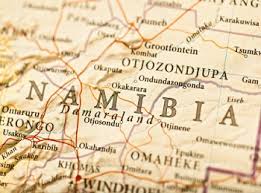Published on Friday April 19 2013 (AEST)

SWAKOMUND - Yesterday’s groundbreaking ceremony for the first phase of the construction of the Swakop Uranium Husab mine in the Erongo Region heralded Namibia’s first direct participation in the mining extraction industry.
Construction of the Husab mine, at an estimated cost of about N$1.2 billion, is expected to extend until 2014 for the mine to produce its first batch of uranium ore by 2015. The mine, situated 60 kilometres northeast of Swakopmund, is said to house uranium reserves of at least 280 million tonnes that could be mined for more than 20 years.
Full production is expected by 2017, with mining from two separate open pits feeding ore to a conventional agitated acid leach processing plant. Government has a 10 percent direct shareholding in the mine, along with the majority shareholder, the Chinese state-owned Guandong Nuclear Power Company Uranium Resources, which bought the mining interest from the Australian-listed mining firm Extract last year for nearly N$19 billion. Namibia’s shareholding is vested in State mining company, Epangelo Mining, which bought the 10 percent equity in Swakop Uranium for over N$1.8 billion.
“Not only will the government benefit from this partnership. Many local companies would directly benefit from the mine through service delivery. This government is committed to the sustainable utilization of the country’s natural resources to benefit Namibians and is encouraging win-win partnerships between Namibians and foreign investors,” Minister of Mines and Energy Isaak Katali said during the groundbreaking ceremony at the construction site.
Once on stream the mine is expected to boost employment in the mining sector by at least 17 percent and increase the country’s Gross Domestic Product by at least 5 percent. The export of ‘yellow cake’ is expected to increase the country’s total exports by 20 percent. The Husab mine deposits are regarded as the most important uranium discovery in recent years, since the mine is anticipated to have a potential of producing up to 15.5 million pounds of uranium per annum. The figure is more than Namibia’s total annual production and will push the country past Niger, Australia and Canada to become the world’s second largest uranium producer.
The 8 kilometre mineralisation has been confirmed as the highest grade, granite-hosted uranium deposit in Namibia. Furthermore, the mine will create 2 000 permanent jobs, 6 000 temporary jobs and at least 8 000 indirect jobs during the construction phase. Katali said the mining industry is one of the securest pillars of the country’s economy and generates billions in royalties and taxes for the government. Katali urged all mining companies to comply and operate within the laws and regulations of the country. “I am aware that an environmental assessment impact was approved by the ministry of environment and tourism as the mining will be conducted in a protect area.
By complying with the relevant laws and regulations at all stages will avoid damaging of the environment and our fragile eco-system…,” Katali said. Chinese Charge d’affaires Li Yigang said the Husab mine is committed to social and empowerment aspects such as job creation and local recruitment. “Swakop Uranium attaches great importance to its goal of localisation in Namibia and is committed to create a fair and competitive bidding environment for technically capable vendors from both Namibia and abroad,” he said.
.
.
 Australian Uranium News - Research
Australian Uranium News - Research


No comments:
Post a Comment